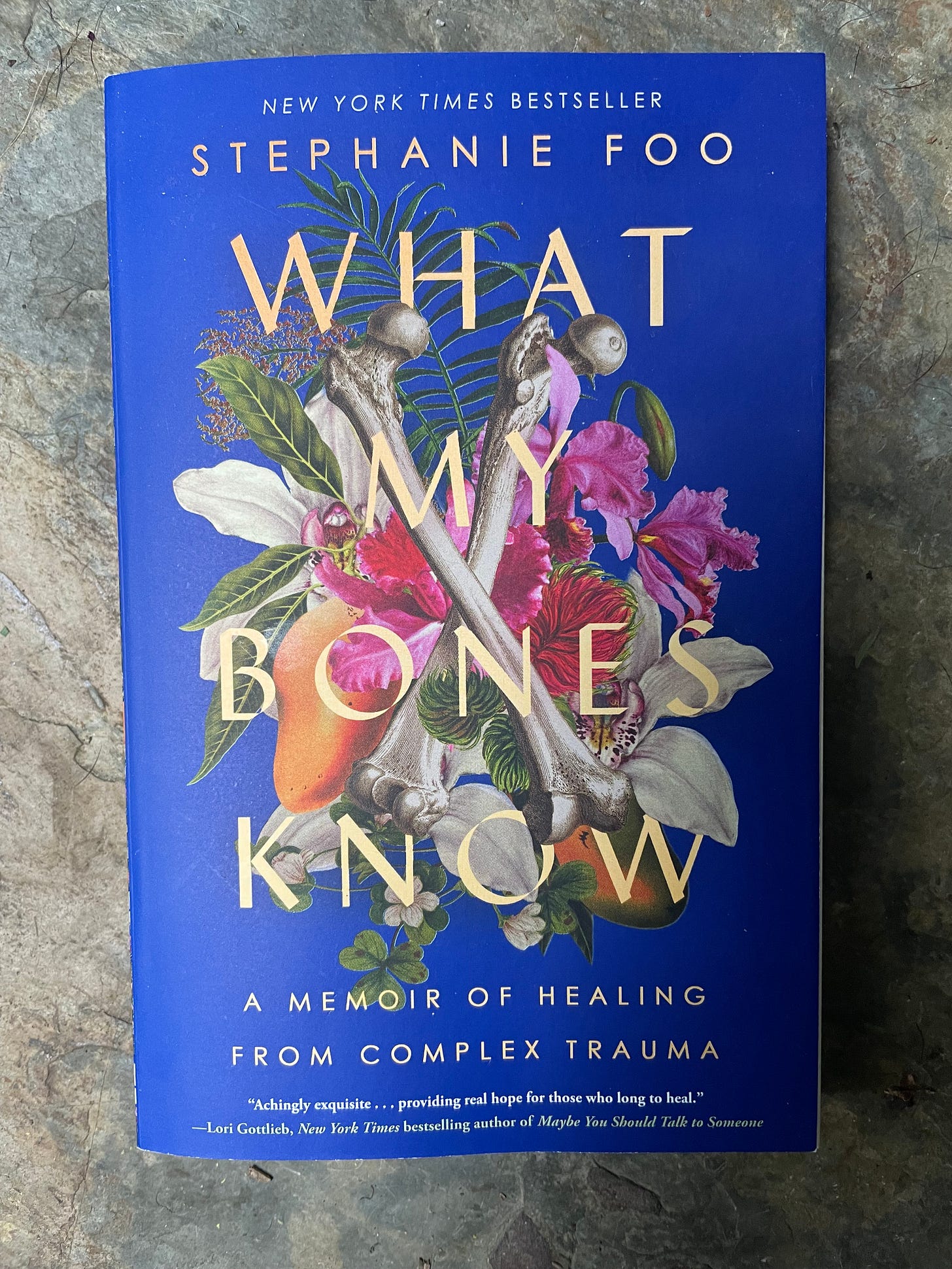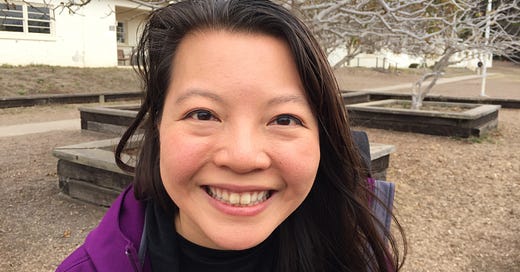Sometimes people wonder why WCA is set up the way it is. Part of the long answer is, our highest priority is making acupuncture easy to try. Along with that, a high priority for us is making it easy for people with trauma to try acupuncture. Which is a lot of people!
Recently my friend Jade, who is also the President of POCA Tech’s Board of Directors, told me, “You should read this book about complex PTSD -- it’s really good and we should talk about it.”

I borrowed it from the library and read it in a weekend, and then I was like, I have to buy a copy so I can underline every other sentence! So I went to Powell’s and made a beeline for the memoir section, where I couldn’t find it, so I asked the nice person at the help desk and they said, “That’s because it’s in the bestsellers.”
Which made me feel both better and worse about the world. I think lots of other people should also read this book -- especially acupuncturists -- so I’m going to try to turn my conversations with Jade into a post.
But first, what is complex PTSD (CPTSD)? From an NPR interview with author Stephanie Foo:
“So you can get traditional PTSD from a single traumatic event, like, say, you were hit by a car. Complex PTSD is kind of like if you were hit by that car every week for years. It manifested in my life as anxiety, as depression. The difference between PTSD and complex PTSD is that complex PTSD sort of has the potential to have a constant fear sort of churning underneath the surface... (the book) was coming from a place of hope, and I wanted to write something that would help other people feel hopeful too. And I don't think that you ever totally heal from complex PTSD. It's sort of something that you carry with you all the time.”
Jade: That’s huge, the idea that complex PTSD isn’t something that can be fixed. I think acupuncturists and acupuncture organizations should have some familiarity with CPTSD because an acupuncture clinic might be one of the first "safer” spaces people go to, when they’re trying to regulate their nervous systems. People often get rejected by other medical providers because of how long they’ve been dealing with the problem.
Acupuncture is all about treating chronic things that come back when triggered.
Me: I can’t think of any other resources that lay it out that plainly, that CPTSD isn’t something that’s going to go away. It’s a relief, right? It’s permission to stop fighting a losing battle. I really appreciated the part where she wrote, “I wouldn’t describe myself as healed from complex PTSD. I wouldn’t even say I’m in remission...I’ve learned that the beast of CPTSD is a wily shape-shifter...I know now it will emerge in another form in a month or a week or two hours from now...But there are two main differences now: I have hope, and I have agency.” (pg 317)
Jade: Having agency with acupuncture can itself be healing for someone with CPTSD. That’s part of why it’s so important to provide acupuncture without pressuring patients, and totally on their own terms -- because a sense of being unheard or pressured into something that they don't want could trigger or add to the CPTSD.
Me: One of the things about community acupuncture that’s most different from conventional acupuncture is the intake, the first time that a patient comes into the clinic and meets with an acupuncturist. That’s where the frame for the whole treatment process gets set: is it going to be patient-centered or practitioner-centered?
For us, the purpose of that first interaction is to give the patient an opportunity to find out if they like acupuncture enough to pursue a course of treatment — as opposed to giving the acupuncturist the opportunity to extract a bunch of personal information. If you think about why What My Bones Know is a bestseller — what does that say about how many people out there are dealing with CPTSD? And yes, that probably affects their health in all sorts of ways, but that doesn’t mean you should try to get them to tell you about it on their first visit. I think people with CPTSD, in particular, need patient-centered systems.
Jade: Making people talk about what they're going through could be unhelpful in so many ways: they might feel like they have to justify their pain to get access to treatment, they might not know what exactly is going on (there was so much in the book about that, about how confusing CPTSD can be), they might feel like they have to "get better" fast enough to justify getting access to more treatments -- and of course just having to talk about your trauma can be triggering.
Me: I love the aspect of Trauma Informed Care that’s about changing the narrative from, What’s wrong with you? to What happened to you? but let’s be honest, I don’t actually want to talk about what happened to me! Especially not with someone I just met! I do want tools to manage its impact.
Jade: People are like, "aren't you over that by now?" No I am not over it. But I can care for myself. That’s hope and that’s agency.




